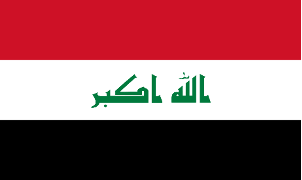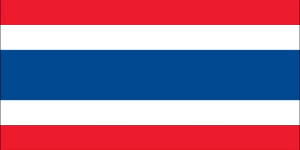November 27, 2020
Dear friends,
CANVAS is pleased to bring you another weekly report! This week covers ongoing protests in Belarus, illegal gold mining in Zimbabwe, the arrest of government officials in Indonesia, and more.
In Ethiopia, the government is launching a military operation in the Tigray region where the TPLF party vows to keep fighting. The humanitarian impact could be massive as the regional capital Mekelle is home to 500,000 people. Furthermore, at least 54 civilians were massacred in the Oromia region by the Oromo Liberation Army (OLA).
In Taiwan, protests have erupted over the government’s decision to overturn a ban on US pork imports which contains ractopamine, a drug banned in the EU and in China.
In increasingly harsh coronavirus measures, North Korea has executed an official for violating coronavirus rules, according to South Korean officials. The country has also completely locked down capital Pyongyang and some industries to further prevent the spread of the virus. In other news, NPR reported in an interview that the soon-to-be released COVID-19 vaccine by Pfizer will not be available for children, as very few were involved in clinical trials, the youngest enrolled being 12 years of age. However, prospects are hopeful: scientists predict that the vaccine may be more efficient in children when studied in a pediatric population. This week, the online media platform YouTube has suspended the One America News Network – an organization that is openly supportive of US President Donald Trump – for sharing misinformation about COVID-19 and a new possible “cure”. This comes among a bid for YouTube to clean the platform of misinformation, as it has also banned alt-right group QAnon from using the site. Finally, G-20 leaders discussed coronavirus supply distribution in a two-day virtual conference. This comes in an effort to not prevent less economically developed countries from proceeding quickly with coronavirus recovery measures.

Donald Trump voices for the first time that he will leave office if the electoral college declares Joe Biden the winner. However, Trump and his allies continue with their unsubstantiated claims of electoral fraud. Biden is picking his cabinet in preparation for taking office; the nominations are diverse and have extensive experience, however, commentators are criticising their backgrounds in ivy league colleges and the Obama administration. Internationalism is set to improve under Biden with a renewed emphasis on positive relationships with allies and value-based world leadership.

Chinese-Australian relations continue to deteriorate following Australia’s support for a probe into Coronavirus. China has imposed a 212% tax on Australian wine imports, the latest of a string of import restrictions on Australian goods. Australia, along with Washington and Japan, has concerns over China’s military construction in the disputed South China Seas. Malaysia claims Chinese vessels are ‘harassing’ their drilling rig as the two face off in the area over hydrocarbon exploration. Chinese-Indian relations flared after satellite images revealed that China was building along a disputed border shared with Bhutan and India. Meanwhile, Pope Francis has criticised China for its treatment of Muslim Uyghur’s.

Hong Kong is currently facing its fourth wave of COVID-19 infections, which has resulted in the closure of bars & nightclubs as well as the delay of the long-awaited travel bubble with Singapore. Leading pro-democracy figure Joshua Wong and two other activists pleaded guilty to “unauthorized assembly charges” and will be sentenced next week. In the meantime, Wong is being kept in solitary confinement at a medical center where the lights are on “24 hours a day” after doctors claimed to see a shadow on an X-ray of his stomach. Wong has not been allowed to see the X-ray. Finally, the city’s Secretary for the Civil Service has stated that city officials who refuse to sign a loyalty pledge to the government will face negative consequences for promotions.

Indonesian Maritime and Fisheries minister Edhy Prabowo arrested on Wednesday in the Soekarno-Hatta International Airport upon returning from a working visit to the United States. The country’s anti-corruption agency released a statement regarding suspicions of Prabowo taking bribes in relation to lobster larvae export permits and using the money to shop for luxury goods in the United States. He was arrested alongside five other government officials and businesspeople for taking bribes in exchange for permits.

The disused Bindura gold mine has collapsed, trapping approximately 30 illegal miners who are now feared dead. Research has revealed that $1.5 billion worth of gold is illegally smuggled out of Zimbabwe annually. The government’s centralised gold buying scheme forces miners to sell to the central bank which underpays producers and causes delays. In other news, Marfume, the mayor of Harare, Zimbabwe’s capital, has been arrested for alleged corruption and abuse of office in 2010. Opposition groups claim that his arrest is politically motivated.

Lukashenko announced on state television that he would step down following the adoption of a new constitution, however, the implications and sincerity of this announcement remain unclear. On Friday, thousands of Belarusians attended the funeral of Roman Bondarenko, an anti-government protester who died after being beaten by security forces last week. Last Sunday, thousands of demonstrated in Minsk for the 15th consecutive week in a “March Against Fascism”. More broadly, the government continues to punish those who oppose President Lukashenko’s regime: thousands of homes in the Novaya Borovaya district, an opposition stronghold, have lost heating and water while at least 16 journalists have been beaten, arrested, and jailed for reporting on the ongoing movement. Meanwhile, seven non-EU members, such as North Macedonia and Ukraine, have joined the EU in sanctioning Belarus.

Iraq has drawn criticism from two international human rights watchdogs this week. First, Amnesty International reported that following the closure of displacement camps that sheltered hundreds of thousands of people, displaced people with “perceived ties” to the Islamic State have been “subjected to arbitrary detention, enforced disappearances, and unfair trials” while also being denied “civil documentation essential for employment, education, access to state benefits, and free movement.” Second, Human Rights Watch condemned a cybercrime bill being considered in the legislature that “includes vague provisions that will allow Iraqi authorities to harshly punish expression they decide constitutes a threat to governmental, social, or religious interests.”

Thailand saw the revival of the country’s lese majeste, or royal insult law, this week. In its first use since 2018, police officials summoned seven leaders of the ongoing anti-government demonstrations for speaking out against the royal family. These summons came directly before another planned rally, which the location was changed in order to avoid clashes with the police and counter-protestors. The rubber duck, now symbolic of the Thai protests for shielding demonstrators from water cannons, has inspired solidarity memes online. Unrelatedly, Thai authorities admitted to a failed seizure of what they believed was nearly $1 billion in ketamine but was actually 11.5 tonnes of a food additive.

Leading Iranian nuclear scientist Mohsen Fakhrizadeh was assassinated near Tehran on Friday, according to authorities. Fakhrizadeh was rumored to have piloted Iran’s covert atomic bomb program in 2003, although Iran denies any claims trying to weaponize nuclear energy. State media has stated that Fakhrizadeh was killed by terrorists, although no group or state has claimed responsibility for the attack. Australian professor Kylie Moore-Gilbert was recently released from her two-year detention in Iran in a trade-off with Iranian prisoners detained abroad.

Nicaragua continues to suffer the aftermath of Hurricane Iota, a category four storm, which hit last week, and Hurricane Eta which hit a week prior. The storms have caused at least $743 million worth of destruction, with 44,000 homes destroyed; the additional damage from Iota is yet to be calculated. The Inter-American Development Bank has pledged $1.7 billion in aid for the millions impacted across Central America. Costa Rica is offering safe passage for Nicaraguans seeking refuge or asylum, and with the assistance of the EU and the UN, is aiming to improve protections for the thousands migrating.

The UN says it expects up to 200,000 refugees from Ethiopia to flee to Sudan over the next half-year if fighting continues in Tigray; 40,000 have already crossed into Sudan as of this week. This refugee crisis comes as Sudan is already battling a new stage of the COVID-19 pandemic: the country is considering new lockdowns due to this month’s spike in cases that has left many dead, including several doctors and a former prime minister. Separately, the governing alliance announced that the formation of the country’s transitional parliament has been postponed until the end of 2020. They say this delay will enable them to account for the needs of the Sudan Revolutionary Front with whom the government signed a peace agreement with in October.

This week, the Inter-American Commission on Human Rights (IACHR) began an investigation into the deaths protestors in Bolivia last year following the ejection of former president Evo Morales from office. This investigation will examine individual deaths and the deaths as a whole and investigate the human rights abuses perpetuated by the interim government. Unrelatedly, President Luis Arce announced that the multimedia platform teleSUR would be allowed to air content in the country after being prohibited from airing by the interim government of Jeanine Anez.